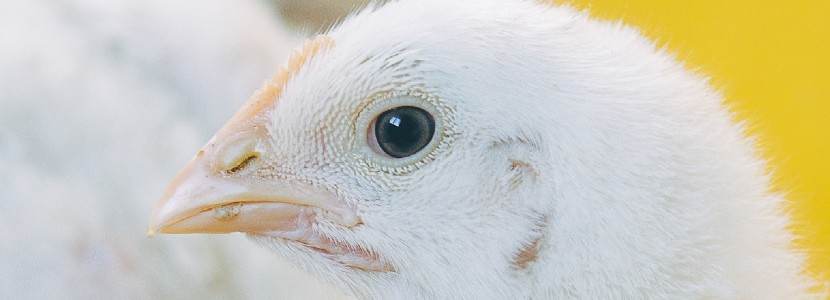 29 Jul 2022
29 Jul 2022
Exogenous enzymes: a tool for maintaining intestinal health
Maintaining production rates with a competitive production cost is a constant challenge for the poultry sector.
The inclusion of exogenous enzymes in diets is an indispensable practice to face this challenge, being that it maximizes the use of feed by birds with a reduction in cost, due to formulation adjustments.
In fact, it is estimated that the inclusion of a nutritional matrix of an enzyme complex containing carbohydrases, phytases and proteases for the formulation of commercial diets of animal origin for broilers is capable of reducing the cost of production by 10 to 15% per ton of ration on average.
| Therefore, exogenous enzymes are essential when formulating bird diets with minimum costs. |
Practical approach to the benefits of using exogenous enzymes
The actions of enzymes on anti-nutritional factors present in diets, such as phytate and non-starchy polysaccharides and on the activity of endogenous enzymes, increasing the availability of nutrients (calcium, phosphorus and amino acids) and energy are frequently mentioned (Alabi et al., 2019; Bedford & Cowieson, 2020) and are reflected in the reduction of costs.
However, this text makes a practical approach to the benefits, in addition to the economic, emphasizing the mechanisms of action of enzymes in the maintenance of intestinal health of birds.
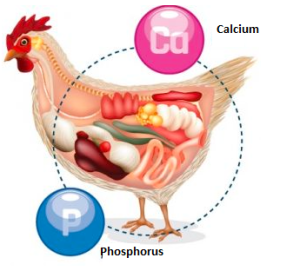
Non-starch polysaccharides
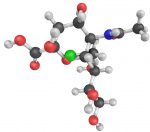
Non-starch polysaccharides, in addition to interfering with the digestion of other nutrients, can favor the growth of undesirable microorganisms, triggering inflammatory responses through intestinal receptors (Kogut et al. , 2018; Dal Pont et al. , 2020). [register]
Proteins
In a similar manner, when proteins remain undigested, these can undergo fermentation which results in the production of toxic metabolites for the animal’s organism (Windey, 2012). As well as altering the homeostasis of microbiota.
| These processes can compromise the integrity of the intestinal physical barrier. This includes the compromise of “tight” junctions made up of proteins that seal spaces between intestinal cells, favoring the passage of pathogenic microorganisms. |
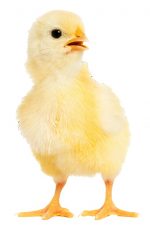 Mode of action of enzymes
Mode of action of enzymes
Recent research addresses different ways in which exogenous enzymes can benefit gastrointestinal tract physiology in animals. Such influence depends on factors like:
Primary action
The primary action of enzymes on anti-nutritional factors increases nutrient digestibility ,as well as reducing the previously mentioned impacts. Resulting in intestinal microbiota with a differential composition and metabolic functions.
Substrate modifications reduce the colonization of pathogenic microorganisms through competitive exclusion. In addition, products resulting from the hydrolytic actions of enzymes can promote gut health.
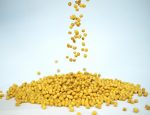
Xylanase
Xylooligosaccharides obtained from xylanase hydrolysis of arabinoxylans can be used by beneficial bacteria as substrate. This results in prebiotic functions for the body (Craig et al., 2020).
Protease
A greater amino acid availability due to the the action of protease can favor processes like: energy generation by enterocytes, cells responsible for the absorption of nutrients, as well as the production of mucin which acts as a protective physical barrier(Cowieson & Roos, 2014).
Beneficial microbiota
The establishment of a beneficial microbiota is fundamental due to its influence on various metabolic processes, including:
It has been reported that enzyme supplementation can influence the composition of intestinal microbiota. Liu et al. (2017) observed that the inclusion of a multienzyme complex increased:
+The ileal content of Lactobacillus and Bifidobacteria
and reduced:
-The content of Clostridium perfringens, the main cause of necrotic enteritis in chickens;
-Intestinal lesions derived from the presence of this bacteria.

Bacteriocins
Complementing the competitive exclusion action, enzyme supplementation can increase the number of bacteria of the genus Enterococcus and Lactobacillus (Borda-Molina et al., 2019). The bacteria belonging to these genera are capable of producing substances known as bacteriocins. These act agaisnt pathogenic microorganisms such as protozoan species belonging to the genus Eimeria. The latter is responsible for avian coccidiosis, which causes the greatest economic impacts on poultry at a global scale.
![]()
In an experiment carried out by the Poultry Research Group of the State University of Western Paraná – Unioeste – (article in the process of publication) it was observed that performance restoration was only achieved when a combination of amylase, xylanase and protease enzymes was added to the diets of birds fed with nutritional restrictions (-100 kcal / kg of metabolizable energy), during the 1 to 21 days period.
Simultaneous inclusion of these three enzymes balanced the cecal microbiota of birds under a nutritionally restricted regime for the control group. Meeting their nutritional requirements in terms of presence/absence and abundance of microorganisms, as well as their predicted metabolic functions.
These results demonstrate that microbiota modulation is a feasible mechanism through which exogenous enzyme supplementation can improve bird performance.
Analytical method

Nutrient diversion towards the activation of immune responses directly influences animal productive rates.
1) For example, Leung et al. (2019) observed that when birds were challenged by Eimeria acervulina and Eimeria maxima at 10 days of age:
– The energy allocated to weight gain at 35 days of age, known as caloric efficiency, was reduced by 15.5% .
– This energy was used to activate the immune response and repair intestinal epithelium damage.
2) Jiang et al. (2018) observed a reduction in gene expression of the pro-inflammatory cytokine IL-1β in the gut of birds fed diets containing high doses of phytase.
Considering that this protein influences the activity and synthesis of immune cells, this result shows that the inclusion of this enzyme contributed to reducing intestinal inflammatory processes.
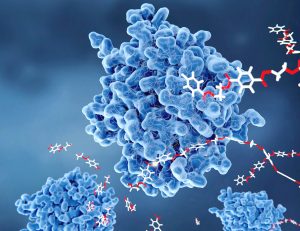
Conclusion
[/register]
Subscribe now to the technical magazine of animal nutrition
AUTHORS

Nutritional Interventions to Improve Fertility in Male Broiler Breeders
Edgar Oviedo
The Use of Organic Acids in Poultry: A Natural Path to Health and Productivity
M. Naeem
Synergistic Benefits of Prebiotics and Probiotics in Poultry, Swine, and Cattle
Gustavo Adolfo Quintana-Ospina
Hybrid Rye Potential in Laying Hen Feed Rations
Gwendolyn Jones
A day in the life of phosphorus in pigs: Part I
Rafael Duran Giménez-Rico
Use of enzymes in diets for ruminants
Braulio de la Calle Campos
Minerals and Hoof Health in the Pregnant Sow
Juan Gabriel Espino
Impact of Oxidized Fats on Swine Reproduction and Offspring
Maria Alejandra Perez Alvarado